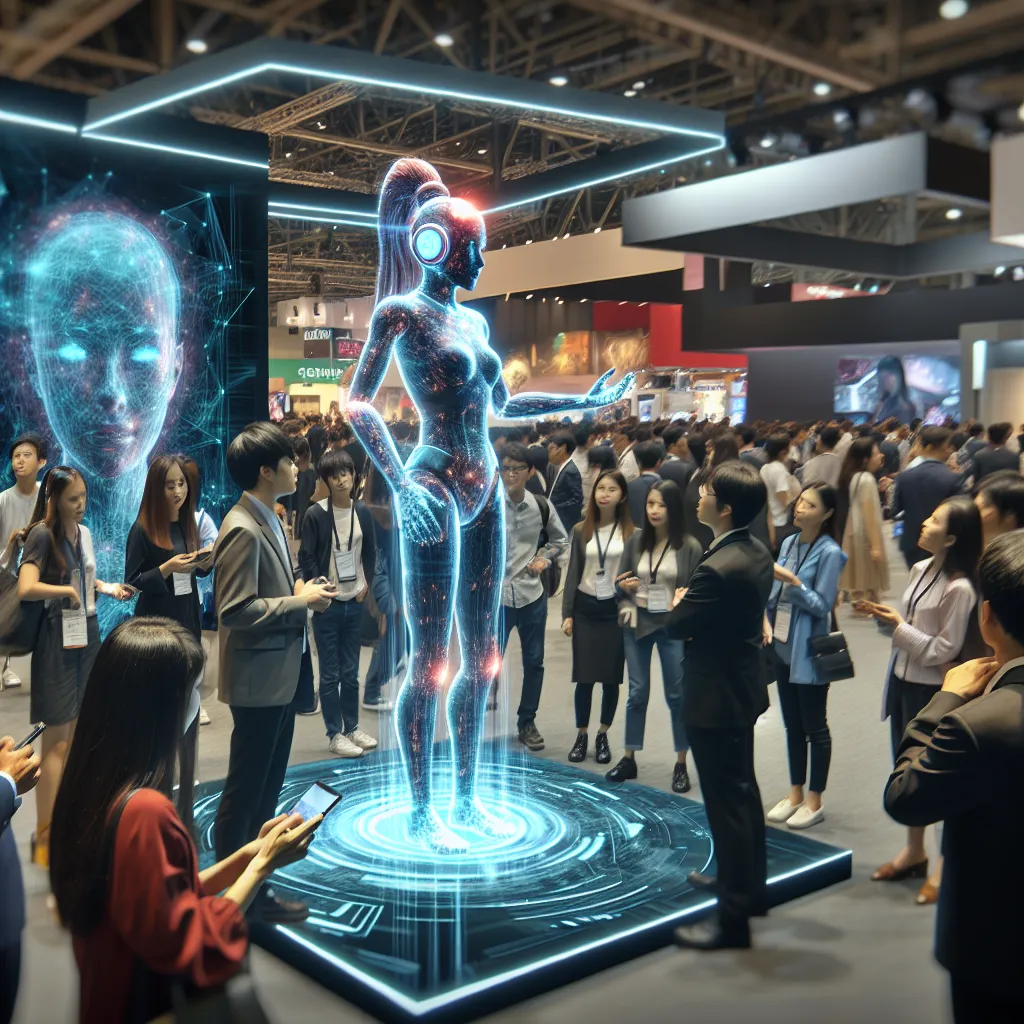The article “Virtual Reality: Shaping the Future of Events” explores the transformative impact of virtual reality (VR) on the events industry. VR is revolutionizing event planning and attendee experiences by creating immersive environments, breaking physical barriers, and enhancing global participation. Moreover, VR technology is streamlining the planning process for event organizers, facilitating detailed event visualization and logistics planning. As VR technology continues to advance, innovative applications such as virtual networking and personalized event experiences are expected. Similarly, the integration of artificial intelligence (AI) is examined in the second part of the article, highlighting AI’s role in streamlining processes, personalizing interactions, and leveraging data analytics to enhance event experiences. The insights provided in the article make a compelling case for embracing VR and AI as tools for creating engaging, inclusive, and impactful event experiences. Readers are encouraged to delve into the full article to gain a comprehensive understanding of how VR and AI are shaping the future of events.
The article “Implementing Sustainable Practices in Event Planning” delves into the rising trend of incorporating environmentally friendly and socially responsible measures in event planning. It highlights the importance of sustainable venue selection, waste management, transportation options, and catering choices in reducing the environmental impact of events. By embracing sustainability, event planners not only contribute to environmental conservation but also meet the evolving expectations of attendees and stakeholders who prioritize eco-conscious events. The article emphasizes the multifaceted nature of sustainable event planning and the essential role it plays in creating impactful, responsible, and environmentally friendly experiences. Additionally, the piece “Eco-Friendly Event Decor and Materials” explores how event planners are increasingly opting for reusable, recyclable, and sustainable decor and materials, driven by the need to minimize the environmental impact of events. It discusses the growing popularity of natural and biodegradable materials, the use of potted plants and flowers, and the integration of LED lighting and energy-efficient fixtures to create inviting event spaces while reducing environmental harm. These articles provide comprehensive insights into the importance of sustainability in event planning and offer valuable tips for creating eco-conscious and impactful events.
The article emphasizes the crucial role of personalization in event planning, highlighting how tailoring every aspect of an event to the specific preferences and needs of attendees is vital for creating truly memorable and meaningful experiences. It discusses how personalization enhances attendee engagement, fosters a sense of connection, and offers valuable insights for event organizers to continuously improve future events. Furthermore, the piece underscores the significance of utilizing technology to gather and analyze attendee data in achieving a high level of personalization. Overall, the article makes a compelling case for the necessity of personalization in creating events that leave a lasting impression and emphasizes its role in enhancing attendee satisfaction and loyalty.
The article delves into the profound changes in news consumption habits driven by technology. It highlights how digital platforms and social media have led to a preference for online news consumption and the profound impact of mobile devices in enabling real-time access to news. The emergence of personalized news content through algorithms and AI-powered systems has also been discussed, raising concerns about the formation of echo chambers. Furthermore, the role of social media in shaping current events has been explored, emphasizing its influence on public discourse, information dissemination, and societal movements. This thought-provoking piece invites readers to explore the fascinating dynamics of tech-driven shifts in news consumption habits and the pivotal role of social media in shaping the current events landscape in the digital age.
The article “Revolutionizing Event Experiences with Emerging Technologies” delves into the transformative impact of emerging event technologies such as virtual and augmented reality, artificial intelligence, and live streaming on the event industry. It explores how these technologies are reshaping traditional events by offering immersive and interactive experiences, extending the reach of events to a global audience, and enhancing engagement through interactive technologies like gamification and gesture control. The piece not only highlights the current impact but also emphasizes the future potential of these technologies to create dynamic, immersive, and personalized events. Moreover, the companion article “The Rise of Virtual and Augmented Reality in Event Planning” takes a deeper dive into the specific role of virtual and augmented reality in redefining event planning, offering insights into how VR and AR technologies are revolutionizing event conceptualization, execution, and data-driven insights. Overall, these articles make a compelling case for the pivotal role of emerging event technologies in shaping the future of event experiences and engagement.
The future of gatherings is evolving with the rise of hybrid events, blending in-person and virtual experiences to cater to diverse attendee preferences and extend the reach of events. This trend offers increased participation, engagement, and a more sustainable approach to events by reducing the carbon footprint associated with travel. Additionally, sustainability has emerged as a pivotal trend in event planning, with a growing emphasis on minimizing environmental impacts and social responsibility, from venue selection to waste management and community engagement. Moreover, the post-pandemic era has seen a significant shift towards virtual reality experiences in events, creating immersive and engaging platforms. With the integration of sustainability, hybrid events, and virtual reality experiences, the events industry is embracing versatile solutions to meet the evolving needs of event organizers and participants, shaping the future of gatherings.
The article explores the rise of hybrid events, which combine virtual and in-person experiences to cater to diverse consumer preferences, break down geographical barriers, and engage both local and global audiences. By integrating virtual elements into traditional events, organizers provide interactive online components, extend engagement, and gather valuable insights through data and analytics. The article also highlights personalization as a game-changer in creating impactful events, and emphasizes sustainability in event planning, addressing the growing demand for environmentally responsible practices. The comprehensive insight into these evolving event trends invites readers to explore how the industry is innovating and redefining the possibilities for creating meaningful and impactful experiences.
The article “Virtual Reality and Augmented Reality: Enhancing Immersive Experiences” delves into the transformative impact of VR and AR technologies on experiential marketing, highlighting their ability to offer unparalleled immersive experiences and reshape the future of events. It emphasizes how VR transports attendees to virtual worlds, creating unique and memorable experiences, while AR seamlessly merges digital information with the physical world, enabling interactive encounters. Moreover, it discusses the utilization of VR and AR for brand activations, gamified experiences, and remote event attendance, underscoring their potential to forge deeper connections with audiences and expand event reach. The piece also touches on the rising trend of sustainability and green events, emphasizing the growing importance of reducing environmental impact in event planning. It presents sustainability practices such as energy efficiency, waste reduction, ethical sourcing, and the development of eco-friendly event products and services, reflecting the collective effort to integrate sustainability into all facets of event execution. Furthermore, the article addresses personalization and customization as key factors in creating impactful event experiences, and it underscores the pivotal role they play in the evolving landscape of experiential marketing, inviting readers to explore the full text for comprehensive insights into these crucial trends shaping the future of events.








